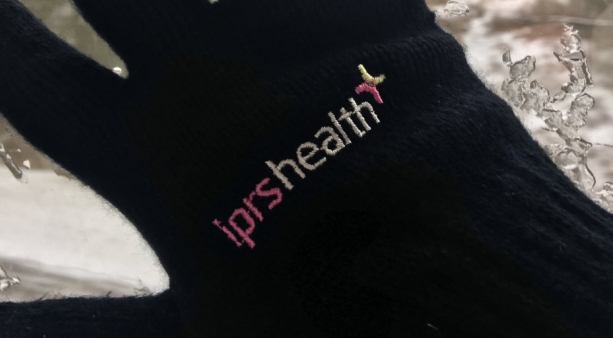IPRS Health's Quick Guide to Winter Wellbeing
Friday 11th November

Dark mornings, shorter days, cold, rain, snow (maybe?)… the seasonal changes of autumn and winter bring their own challenges, so it’s important to take steps to look after your physical and mental health during this time.
In this blog, we will explore some of the challenges that the winter months pose to our health and how we can help maintain our wellbeing.
Pain
A common complaint with the change in the weather is that it flares up joint and muscle pain, especially in conditions like osteoarthritis (OA). In fact, an Australasian study found that the majority of OA patients reported weather sensitivity (Ng et al. 2004). The scientific community has offered a number of potential physical and psychological explanations for the greater effect of weather changes on people with OA; including that, because the different types of tissue in our joints have different densities, they expand and contract in response to atmospheric changes in different ways. The theory is that this results in altered sensations of pressure, stiffness, or pain. Another explanation is that weather can adversely affect mood, which in turn can affect our perception of pain. Negative feelings are associated with higher levels of pain in people, and we’ll come back to the link between seasonal changes and mood later in the blog.
People tend to exercise less in the colder season, and there are a number of reasons for this. Less hours of daylight and inclement weather make outdoor activities less appealing or less accessible, which can reduce your exercise options. A big motivator for people to exercise in spring and summer is to be ‘beach-body’ ready; naturally this motivation might disappear once thick jumpers and overcoats become the outfit of choice. Lower levels of physical activity can have a knock-on effect on physical health; we can gain weight, which combined with moving around less, may potentially increase your aches and pains. Joints and muscles need to move, or they can become stiff and tight, so it’s vital to come up with new ideas to maintain your physical activity during the winter. It’s also a great opportunity to explore new forms of exercise like gym classes, swimming at the local (indoor!) pool, or cycling. There are a number of apps available offering ideas for low-budget home exercise plans, but equally, there is no reason not to continue exercising in the great outdoors during the winter – you might even find a new passion for an exhilarating run in the rain!
Mental Health
Seasonal changes can also bring significant challenges to our mental well-being. Inclement weather can cause disruption in our usual routines. People may experience greater loneliness during the winter, because we tend to socialise less than in the summer. There are also added pressures from travel delays, additional spending, and the added pressure of planning for the festivities; we all know that family events can be stressful. It’s even more important to be mindful of your mental health, and that of your friends, family, neighbours, and colleagues, at this time of year.
Seasonal Affective Disorder (SAD) is a form of depression that people may experience at a particular time of year or with a particular season; it is a recognised mental health disorder. The change in seasons affects most of us; it is normal to feel more cheerful and energetic when the sun is shining and the days are longer, or to find that you eat more or sleep longer in winter. However, if you experience SAD, the change in seasons will have a much greater effect on your mood and energy levels, and can lead to symptoms of depression that may have a significant impact on your day-to-day life. Most sufferers experience SAD in the winter, because there’s less daylight, but it can be the reverse in some people.
Mental health issues are common, with one in four people likely to be affected at some point in their lives. The signs can sometimes be hard to spot, so it’s important to discuss any concerns openly with family, friends, or colleagues. Here are some simple strategies you can use to boost your mental health:
- Talk. Whether it’s face-to-face, by phone, email or text – opening up about your thoughts and feelings can be beneficial in helping you to deal with challenging times.
- Make time to exercise: All forms of exercise have positive effects on your psychological (and physical) well-being, through the release of endorphins and providing a sense of routine, fun, and achievement or reward.
- Take the time to do things that you enjoy: This sounds obvious, but making sure you take time out of your busy schedule to do the simple things you find relaxing and enjoyable can help reduce stress
- Ensure you maintain a healthy, balanced diet and limit alcohol intake. The festive period is often a time of excess, but the New Year is a good opportunity to make positive adjustments to leading a healthier lifestyle
- Spend more time outdoors: It isn’t always tempting to go outside in winter, but getting as much natural daylight as possible can be important during darker months.
So, Spring is still a long way off, and it’s statistically likely that the worst of the winter weather is ahead of us; hopefully this blog has given you a few ideas about taking care of yourself during the coming winter months. To finish on a positive note, remember – we’ve passed the Winter solstice, so we’re getting a couple of minutes more daylight every day, all the better to enjoy the coming snow…
« Back to News & Blog